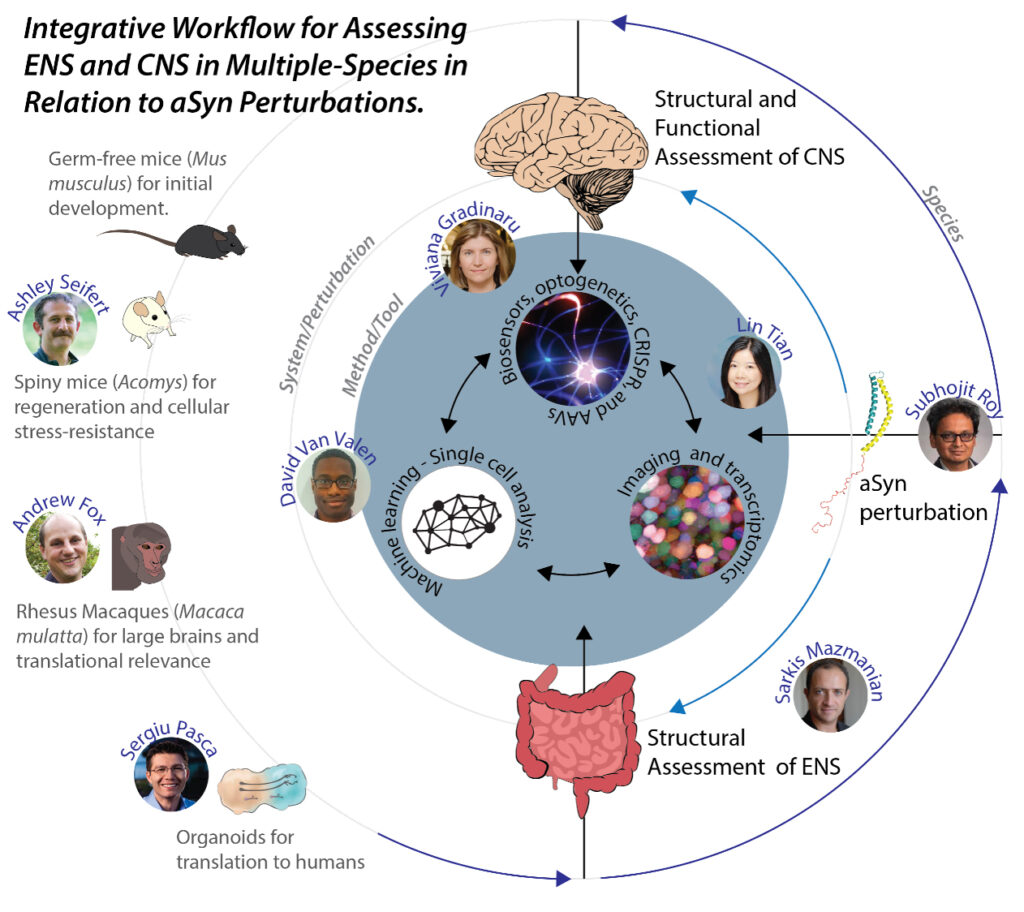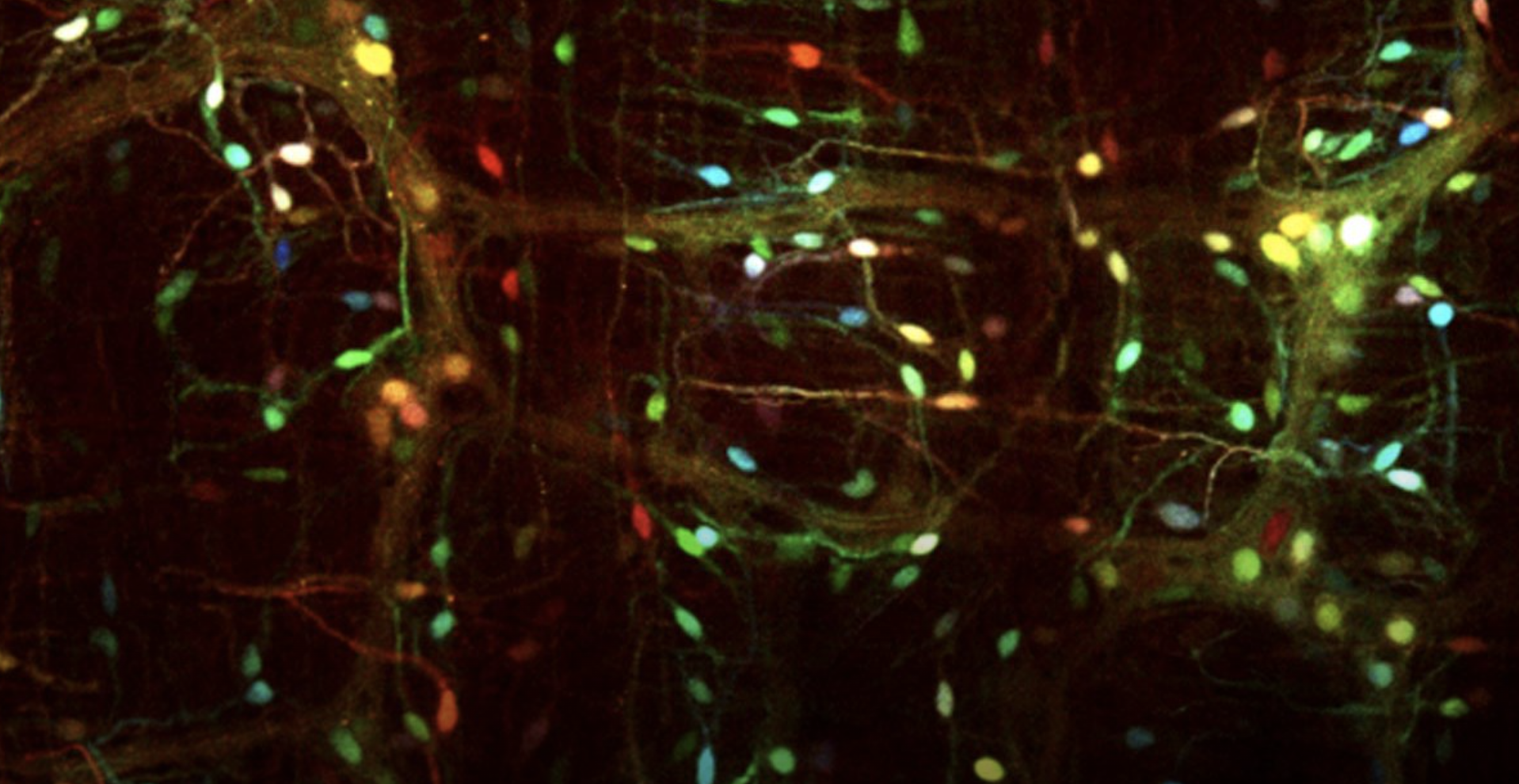Gut-to-Brain Circuit Contributions to Parkinson-Like Phenotypes in Disease Models
Although clinicians have long reported that Parkinson’s disease (PD) does not affect the brain alone, the field has only recently started to investigate gut dysfunction in experimental models of PD. Consequently, the anatomical and functional basis of gut-to-brain circuitry dysfunction in PD—such as network activity and dopamine signaling—remain poorly understood. As part of the Aligning Science Across Parkinson’s (ASAP) initiative, our team is characterizing circuit mechanisms underlying gut-to-brain disease spread and progression in the earliest appearance of Parkinson’s symptoms.
Researchers Team Up to Fight Parkinson’s Disease

Hypothesis
Our hypothesis is that environmental and genetic factors impact the connections between neurons in the enteric nervous system (ENS), which regulates the gastrointestinal tract. This disruption may increase susceptibility to PD triggers—including aggregation of alpha-synuclein, which is toxic to cells and can trigger PD symptoms and gut inflammation. This inflammation could, in turn, augment the toxic form of alpha-synuclein that circulates to the brain and causes dysfunctions in neural circuits and motor deficits.
Study Design
We will determine PD-relevant gut and brain anatomic and physiologic profiles in rodents, primates, and human cells by clarifying the anatomic pathways underlying gut-to-brain propagation of aggregated alpha-synuclein in mice, and by constructing anatomic and functional maps of macaque ENS and central nervous system PD-relevant circuits at single-cell resolution. We also will test whether disruption of ENS circuitry mitigates gut-brain disease outcome and evaluate whether spiny mice (a rodent model that can repair damaged tissue) show protection from PD-related gut-brain degeneration.
Impact on Diagnosis
Using powerful new technologies across multiple PD-relevant model systems, this project could uncover novel circuit mechanisms that mediate symptoms, and embolden new therapeutic options to slow, halt, or perhaps reverse peripheral symptoms of PD.
The Team
Viviana Gradinaru
Caltech
Coordinating Lead PI

